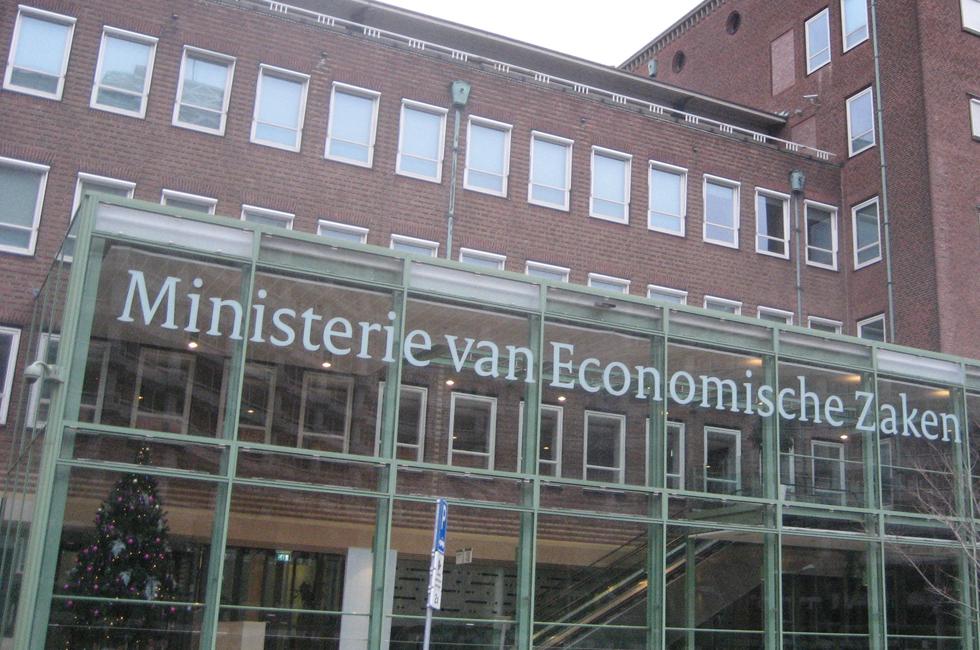April 14, 2020 - In a letter to Mona Keijzer, State Secretary for Economic Affairs and Climate Policy, AmCham responded to a request to provide input on the Dutch franchise bill that is currently debated in Parliament. Earlier on in the legislative process, during a public consultation, AmCham already shared its viewpoint extensively. In the letter submitted today, AmCham again asks the State Secretary's attention for a number of key concerns. A copy of the letter is available below.
To the State Secretary for Economic Affairs and Climate Policy
H.E. Mrs. drs. M.C.G. Keijzer
Amsterdam, April 14, 2020
Your Excellency,
The American Chamber of Commerce in the Netherlands (AmCham) would like to make use of the opportunity to share input on the questions that were recently tabled by Members of Parliament with respect to the franchise bill. We have been informed that interested parties have been requested to share input before 14 April, which we hereby comply with.
AmCham is an independent association representing mostly American companies based in the Netherlands as well as Dutch and international companies with substantial business interests in the United States. AmCham’s mission is to ensure that the Netherlands is a competitive environment for companies to invest in. AmCham is the voice for U.S. business in the Netherlands and for all companies involved in transatlantic trade.
AmCham considers international franchise linkages to be an integral part of cross border trade. American and other foreign franchisors are active in the Netherlands and Dutch franchisors are also operating internationally – very often under Dutch law. The Dutch legal system is generally regarded as transparent and well balanced and the Dutch courts as reliable and efficient. AmCham studied the franchise bill, the position of the Council of State and questions submitted by Members of Parliament. Earlier on in the legislative process, specifically during the public consultation on the franchise bill which closed on 31 January 2019, we shared our vision on the proposal extensively. With this letter we want to ask your attention once more for four key concerns, relating specifically to the questions submitted by Members of Parliament and linked to our earlier position.
The following key concerns about the franchise bill remain:
- Several Members of Parliament have tabled questions which address the assumption in the bill that franchisors are in all situations more economically powerful and financially secure than their franchisees. Based on national and international experience, we remain convinced that this approach in the bill is an oversimplified view of reality. We believe that empirical and objective market studies confirming this, should be included in the debate and law. There are of course large and economically powerful franchisors, but also small franchisors which deal with big franchisees. Some franchise relationships are new, others have been ongoing for decades. There also is a relevant difference between hard franchise and soft franchise formats when it comes to the level of entrepreneurial freedom of the franchisee and the level of responsibility of the franchisor. For that reason we would like to suggest to add a clear distinction in the bill between the following elements: whether a franchisor or franchisee is a small or large company, and/or whether it considers hard or soft franchise, and/or the sector or industry it operates in.
- As the Members of Parliament rightfully point out with their questions, the many open standards in the bill lead to legal uncertainty, in particular because the bill is mandatory in its entirety. The bill sets out a lot of open norms without stipulating what has to be done to meet them. Open norms and mandatory law simply do not match. If mandatory law is necessary, it has to be clear how the imposed obligations can be met. For that reason we would like to suggest to minimize the open standards as much as possible.
- Some franchisors work with master franchisees situated in the Netherlands and in effect on an international scope. In its relation towards its franchisees, a Dutch master franchisee of a foreign franchisor cannot deviate from the rules in the bill by opting for a different law and forum in his franchise agreements with Dutch franchisees, while the franchisor in his agreement with the master franchisee has this freedom. This entails a serious risk for the master franchisee that he will be bound by obligations that he cannot back-to-back enforce on his franchisees. This example proofs the questions raised by some political factions. For that reason we would like this to be solved by having this law apply to the Dutch ecosystem without international economical spillover for international franchise agreements.
- AmCham is worried that this bill is likely to affect the willingness of foreign franchisors to engage in business in the Netherlands. It will become attractive for foreign franchisors to no longer appoint master franchisees in the Netherlands and instead to either avoid the Dutch market altogether or to appoint unit franchisees in the Netherlands directly from a legal entity abroad (without opening a Dutch subsidiary as a franchisor) under a different chosen law and forum. This is not in the interest of the Dutch economy or the development of franchise as a successful cross border business model. This is related to in the questions of Members of Parliament. For that reason we would recommend obtaining advice regarding the potential consequences for the investment climate in the Netherlands.
In conclusion, and based on the topics raised by Parliament, AmCham wants to underline that it is important to improve the bill in the interest of franchise as a sector for the Dutch economy. With some relatively easy proposed improvements, the bill would strengthen the investment climate, as well as the development of a balanced and prosperous franchise sector in the Netherlands.
Yours sincerely,
Elke Roelant
Program Director
American Chamber of Commerce in the Netherlands
